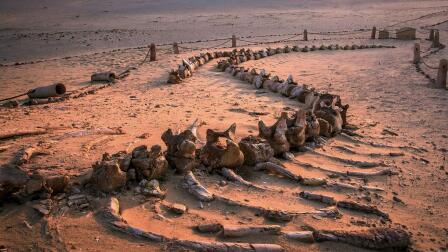Rewilding Patagonia
Three-quarters of all land on Earth is now significantly affected by human activity and the few remaining pockets of wilderness are themselves at risk of becoming ecological deserts. Agriculture, industry, urbanization, climate change — all these are decimating ecosystems and destroying biodiversity. Some 60 percent of the world's animals have been wiped out since the 1970s.
In response, a worldwide movement is under way to "rewild" the countryside. Rewilding is the restoration of an entire ecosystem to its natural state, by removing foreign species while reintroducing and protecting native ones. It begins with the removal of livestock, allowing vegetation to flourish. This encourages insects and other animals, attracting birds and other small predators. Removing fences allows for the return of herbivores, which are preyed on by apex predators — those at the top of the food chain — which then also multiply.
One rewilding initiative — right at the tip of South America, in Chile's Patagonia — is exceeding all expectations. There, two philanthropists, Kris McDivitt Tompkins and her late husband Doug Tompkins, have helped create one of the largest national parks in the world. Kris, the founder and CEO of the clothing brand Patagonia, and Doug, the founder of Esprit and North Face spent $345m buying up vast tracts of land for restoration and rewilding.
In what has become recognized as the biggest land donation in history, Tompkins has handed 400,000 hectares over to the Chilean state to be run as national parks, alongside four million hectares of land contributed by the state.


